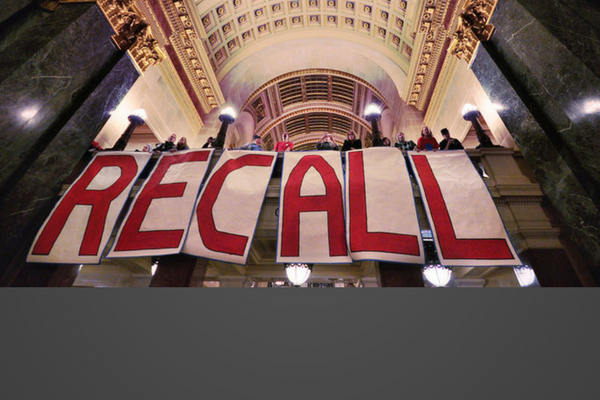
Alaska Attorney General Kevin Clarkson (R) has until November 4 to determine if the recall petition targeting Gov. Mike Dunleavy (R) presents a legitimate case for recall. Alaskan state laws require recall campaigns to submit a statement of no more than 200 words providing the grounds for recall, which include “misconduct in office, incompetence, or failure to perform prescribed duties.”
If Clarkson approves the recall petition language, supporters will need an additional 71,252 signatures to force a recall election. The recall campaign had to initially submit 28,501 signatures to request a recall petition from the Division of Elections; it submitted 49,006 signatures on September 4. If Clarkson rejects the recall, Recall Dunleavy spokeswoman Claire Pywell said that the group is prepared to appeal the decision in the state’s Superior Court.
Recall supporters claim that Dunleavy authorized state funds to be used for partisan advertisements, failed to appoint a judge to the Palmer Superior Court within the required statutory timeframe, and made accounting errors in budget vetoes which they allege could have cost the state millions in Medicare funding.
In response to the recall effort, President Donald Trump (R) wrote on Twitter on October 30, “My friend Mike @GovDunleavy of the Great State of Alaska, is being treated very unfairly by the Democrats because he is doing an unbelievable job and fulfilling every one of his promises. Now they are trying to Recall him because his agenda is the Economy, Jobs, and protecting our Military, 2nd Amendment, Energy, and so many other things that the Democrats don’t care about. Please stop the Dems from hurting a very good and hard-working man!”
Pywell criticized Trump’s allegation that the recall effort is led by Democrats. She said, “We’re not surprised that Dunleavy, and now national folks, are lying about our makeup and mischaracterizing our support. I mean, tell that to people like Joe Usibelli Sr. –– folks who are absolutely on the train not only because it’s a nonpartisan issue but because it’s an issue for all Alaskans.”
Alaska is under a divided government. A state government trifecta exists when one political party simultaneously holds the governor’s office and both state legislative chambers. Republicans control the state Senate by a 12-7 margin with one vacancy. Although Republicans also won a majority in the state House in the 2018 elections, a coalition of 15 Democrats, four Republicans, and two independents elected Bryce Edgmon (undeclared) as the state House’s speaker on February 14, 2019. This resulted in the parties having split control of key leadership positions in a power-sharing agreement. Gov. Mike Dunleavy (R) won the governor’s office in 2018.
This recall effort is one of seven gubernatorial recalls Ballotpedia has tracked in 2019. Three others are currently underway in California and New Jersey; two different recall campaigns are currently targeting the California governor.
From 2003 to 2018, Ballotpedia tracked 17 gubernatorial recall efforts. During that time, two made the ballot and one governor was successfully recalled. Former California Gov. Gray Davis (D) was recalled in 2003; Arnold Schwarzenegger (R) won the election to replace him. In 2012, former Wisconsin Gov. Scott Walker (R) was retained in a recall election. North Dakota Gov. Lynn Frazier (R) was the only other governor removed from office through a recall election, which happened in 1921.
Additional reading:

